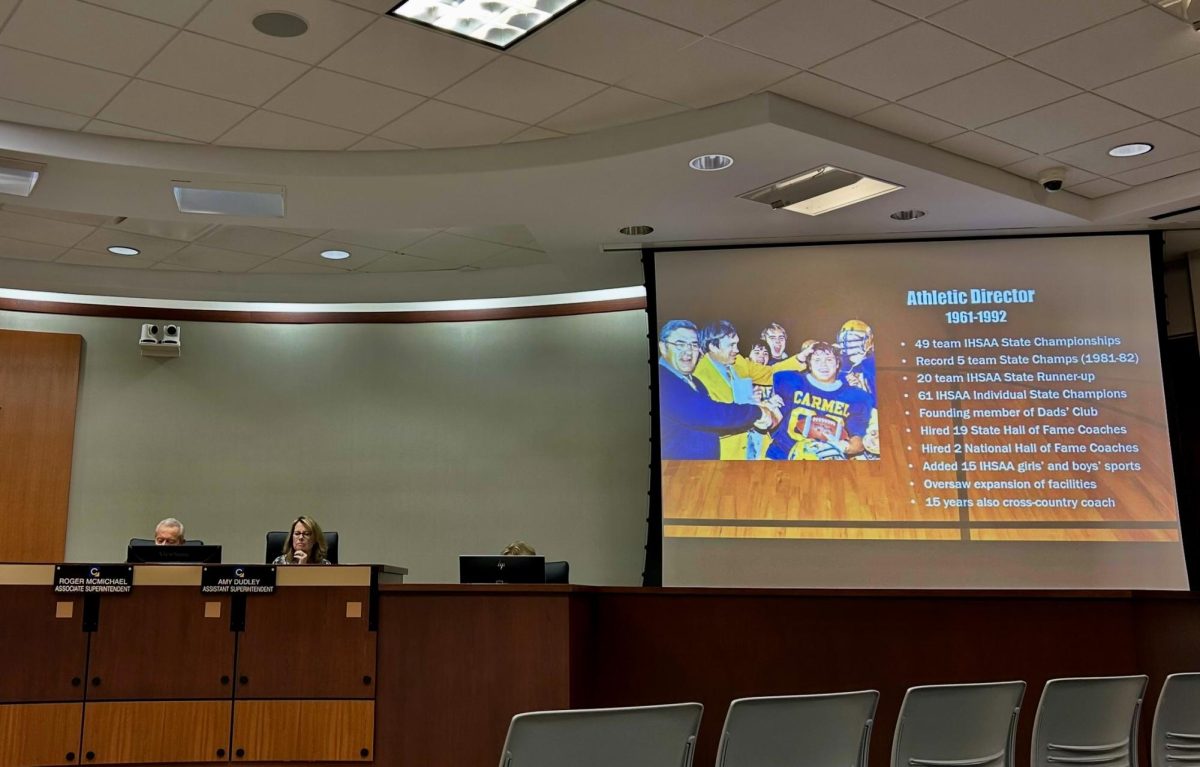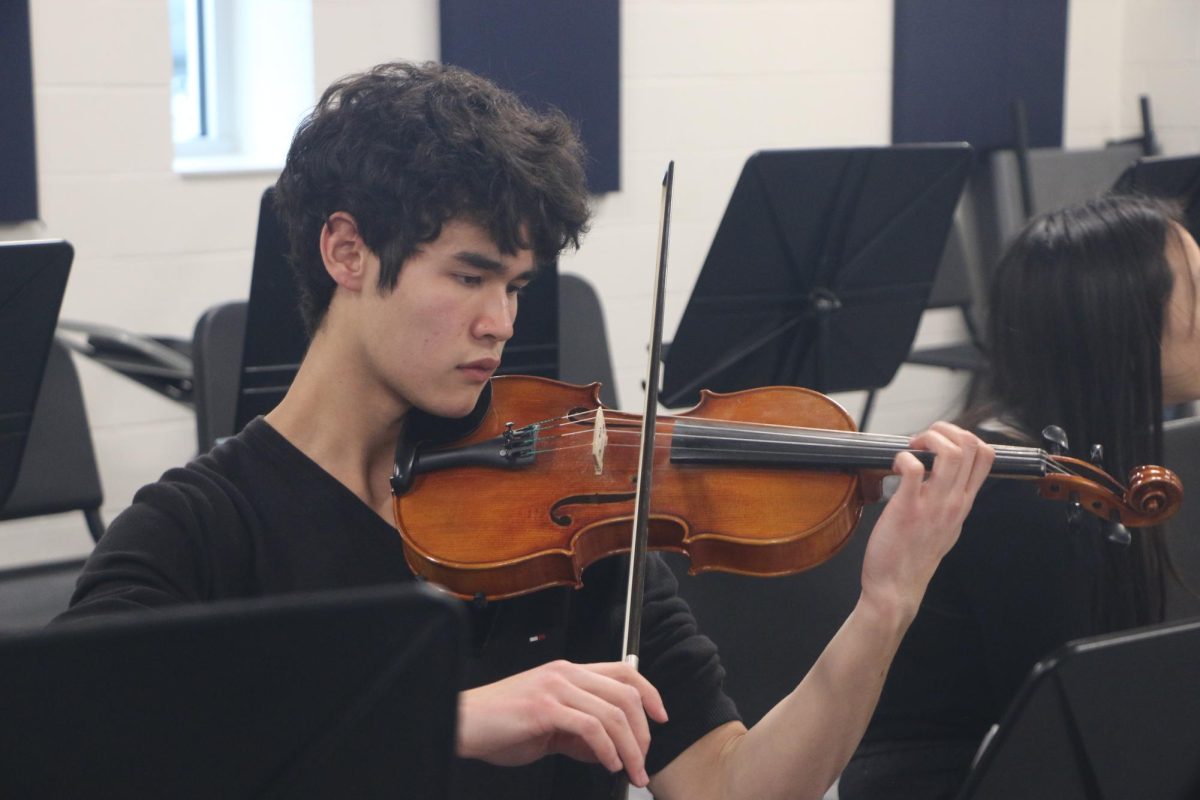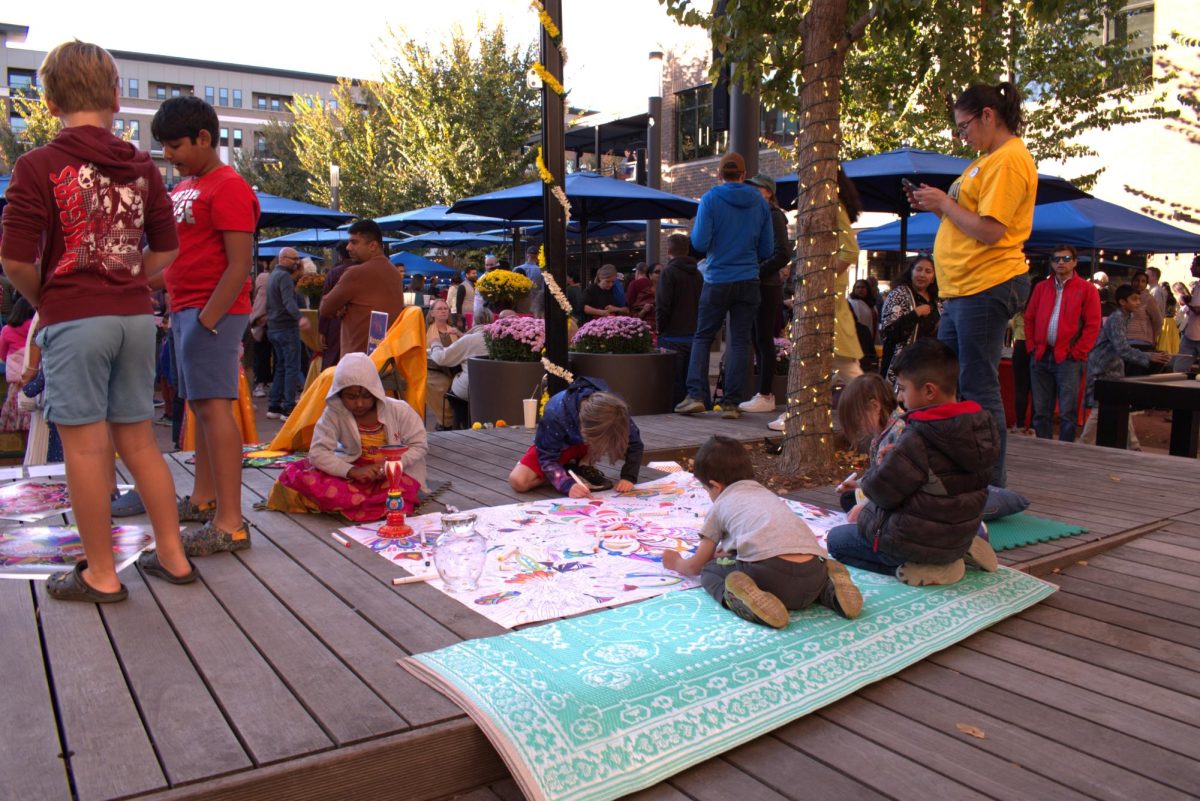
Internationally-adopted students decide against maintaining ties to country of origin
By Laura Peng
Senior Garrett Bacon and his older sister Lauren were adopted from South Korea by parents Michael and Connie Bacon when they were four months old and two months old, respectively.
Despite his origin, Bacon rarely eats South Korean food or speaks the native language at home.
This is not unusual, according to Perrin Slowey, a mother of two internationally-adopted children and a past president of FCC Indiana, a network that focuses on maintaining a community of families who have adopted internationally. Slowey said children like Garrett and Lauren assimilate to the American culture in a variety of ways but may eventually lose ties to their country of origin while growing up.
“(Assimilation) differs from child to child and family to family and depends quite a bit on the age at which the child is adopted,” Slowey said. “My children were eight and ten months old at adoption. They suffered a bit of culture shock in the first few weeks and months but otherwise assimilated quickly. But this might not be the case for all children, especially those who come to America at an older age.”
Families consisting of American parents and international adoptees are not uncommon. According to the U.S. Department of State, American families adopted well over 200,000 children from outside the United States in the past decade.
Rates peaked in 2004 with a total of 22,990 international adoptions to the United States, and though they have since decreased, the statistics indicate that the number of internationally-adopted children in high schools will increase within the next few years.
Garrett, who said he considers himself an American, assimilated to the culture quickly.
He said, “I didn’t face any challenges because it was at such a young age. I grew up in American culture, so I didn’t have to put forth much effort to adapt.”
Mrs. Bacon said she agrees with that assessment.
She said, “Lauren and Garrett were babies. They were on soy formula, and the only difference was in their diet. Besides that, they adapted completely because they were so young.”
As for children who arrive in America at an older age, Slowey said the changes can often be quite overwhelming.
She said, “Imagine waking up one day after riding on a plane for over 29 hours. The person who normally feeds and cares for you is gone, your favorite foods are gone and your bed is different. People now around you look, smell and act completely differently than anything you have ever experienced. No one speaks your language. Perhaps there are pets in the house, and you know nothing of animals. All the rules where you are appear confusing and different. Everyone thinks what has happened is so wonderful. I’d imagine that could be scary and overwhelming for anyone.”
Despite a relatively effortless transition to an American lifestyle, Garrett said his family still made efforts to incorporate Korean culture into his life when he was young.
According to Mrs. Bacon, the family traveled to Michigan each year to attend a week-long camp organized by second-generation Koreans through a church and the University of Michigan.
“They would receive Korean culture, language, food, art and history,” she said. “They were submerged in Korean heritage with Caucasian families like us that adopted children from Korea. Then when we lived in Ohio, we had a huge support group of families with adopted Korean children.”
Mrs. Bacon said Garrett and Lauren, now ages 18 and 21, made the decision to move beyond these cultural activities as they got older and pursued other interests.
“You couldn’t force them to do anything. It was always a choice if they wanted to (maintain ties), and we would certainly go with them to somewhere that would promote that, but it got less and less as the years have gone by. And now they’ve gotten older and started pursuing their own interests, so it’s not as big of a deal to them now,” she said.
Garrett said he eventually lost ties to his country of origin as he grew up. He said this sets him apart from other children who grow up with parents from another country.
“With (a family from another country), the parents still have ties to the native country and probably want their child to maintain those ties. I went to a Korean culture camp for a bit when I was young, but that was it. When we moved to Indiana, it was too far away, and we stopped. With parents from the native country, those ties may be maintained throughout your entire life,” he said.
Sophomore Sohee Kwon, whose parents emigrated from South Korea, said maintaining Korean culture in her life is a priority. Kwon, who partakes in activities with her youth group at an all-Korean church every weekend, said she considers heritage an important aspect of an individual’s identity.
She said, “I feel that an adopted child would miss out on a lot because he doesn’t have a connection to his culture. He should learn more about where he came from because it’s important for people to know their roots to learn and understand more about themselves.”
However, Kwon said she can understand how difficult it might be for adopted children to maintain ties to a heritage when they are not surrounded by it at home.
Slowey said the degree of maintaining ties to a country of origin varies among individuals, and situations similar to that of Bacon are not uncommon.
“Connections to home countries don’t have to be meaningful and all-important to everyone,” Slowey said. “Some adoptees feel completely comfortable with their American culture and do not feel the need to seek what a home culture can offer. I believe this should be respected and honored.
“But there are also adoptees who at some point in their lives feel they are missing something, a part of themselves if they don’t connect with where they came from. Some feel that they can’t move on and grow without knowing their roots and their birthright heritage. I do feel it is important to expose children to their home culture as best we can, and then hopefully it won’t feel so different to them as teenagers.”
Slowey said adoptees have a wide variety of options to maintain ties with their country of origin.
“Use the Internet. Google the group you are interested in. Finding a culturally-rich group isn’t hard in this community. If you join a group or attend a function, talk to the elders in the group. They will undoubtedly have a wealth of knowledge to start forming a connection,” she said.
However, Garrett said he does not plan to create any new ties with his South Korean heritage in the near future.
“It wouldn’t be very feasible right now with my schedule since I’m getting ready for college,” Garrett said. “But I may possibly (visit Korea) in the future. That might be something I do as an adult.”




























![Keep the New Gloves: Fighter Safety Is Non-Negotiable [opinion]](https://hilite.org/wp-content/uploads/2024/12/ufcglovescolumncover-1200x471.png)






!["Wicked" poster controversy sparks a debate about the importance of accuracy versus artistic freedom [opinion]](https://hilite.org/wp-content/uploads/2024/11/riva-perspective-cover-1200x471.jpg)









































![Review: “We Live in Time” leaves you wanting more [MUSE]](https://hilite.org/wp-content/uploads/2024/12/IMG_6358.jpg)
![Review: The premise of "Culinary Class Wars" is refreshingly unique and deserving of more attention [MUSE]](https://hilite.org/wp-content/uploads/2024/12/MUSE-class-wars-cover-2.png)
![Introducing: "The Muses Who Stole Christmas," a collection of reviews for you to follow through winter [MUSE]](https://hilite.org/wp-content/uploads/2024/12/winter-muse-4.gif)
![Review: "Meet Me Next Christmas" is a cheesy and predictable watch, but it was worth every minute [MUSE]](https://hilite.org/wp-content/uploads/2024/11/AAAAQVfRG2gwEuLhXTGm3856HuX2MTNs31Ok7fGgIVCoZbyeugVs1F4DZs-DgP0XadTDrnXHlbQo4DerjRXand9H1JKPM06cENmLl2RsINud2DMqIHzpXFS2n4zOkL3dr5m5i0nIVb3Cu3ataT_W2zGeDAJNd_E-1200x884.jpg)
![Review: "Gilmore Girls", the perfect fall show [MUSE]](https://hilite.org/wp-content/uploads/2024/11/gilmore-girls.png)
![Review in Print: Maripaz Villar brings a delightfully unique style to the world of WEBTOON [MUSE]](https://hilite.org/wp-content/uploads/2023/12/maripazcover-1200x960.jpg)
![Review: “The Sword of Kaigen” is a masterpiece [MUSE]](https://hilite.org/wp-content/uploads/2023/11/Screenshot-2023-11-26-201051.png)
![Review: Gateron Oil Kings, great linear switches, okay price [MUSE]](https://hilite.org/wp-content/uploads/2023/11/Screenshot-2023-11-26-200553.png)
![Review: “A Haunting in Venice” is a significant improvement from other Agatha Christie adaptations [MUSE]](https://hilite.org/wp-content/uploads/2023/11/e7ee2938a6d422669771bce6d8088521.jpg)
![Review: A Thanksgiving story from elementary school, still just as interesting [MUSE]](https://hilite.org/wp-content/uploads/2023/11/Screenshot-2023-11-26-195514-987x1200.png)
![Review: "When I Fly Towards You", cute, uplifting youth drama [MUSE]](https://hilite.org/wp-content/uploads/2023/09/When-I-Fly-Towards-You-Chinese-drama.png)
![Postcards from Muse: Hawaii Travel Diary [MUSE]](https://hilite.org/wp-content/uploads/2023/09/My-project-1-1200x1200.jpg)
![Review: "Ladybug & Cat Noir: The Movie," departure from original show [MUSE]](https://hilite.org/wp-content/uploads/2023/09/Ladybug__Cat_Noir_-_The_Movie_poster.jpg)
![Review in Print: "Hidden Love" is the cute, uplifting drama everyone needs [MUSE]](https://hilite.org/wp-content/uploads/2023/09/hiddenlovecover-e1693597208225-1030x1200.png)
![Review in Print: "Heartstopper" is the heartwarming queer romance we all need [MUSE]](https://hilite.org/wp-content/uploads/2023/08/museheartstoppercover-1200x654.png)



